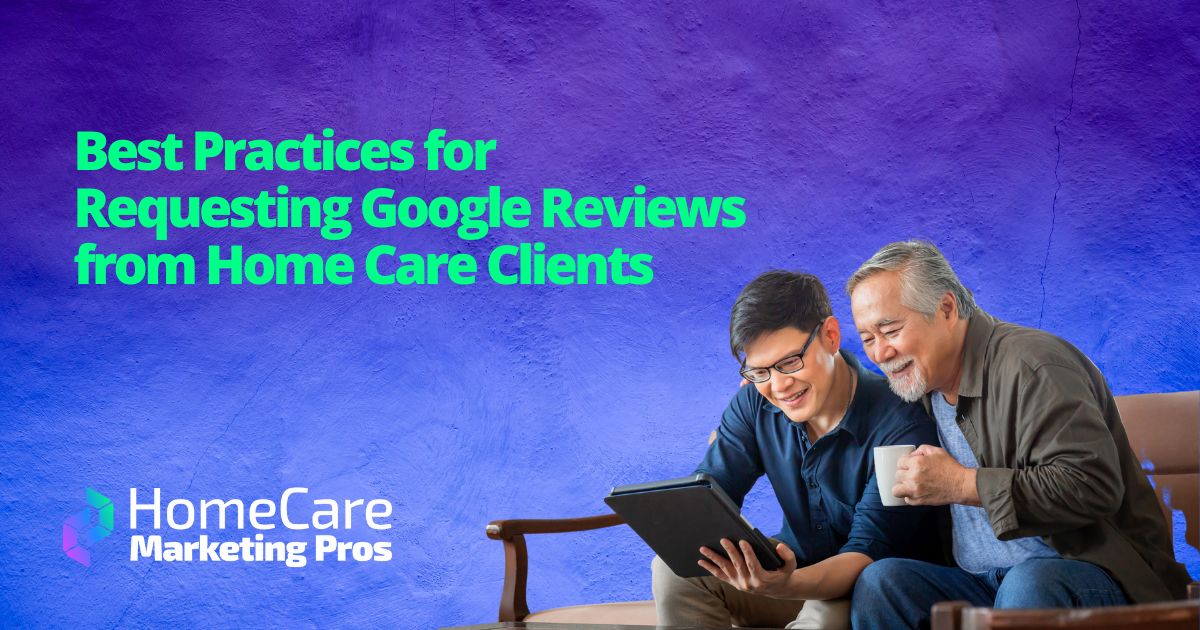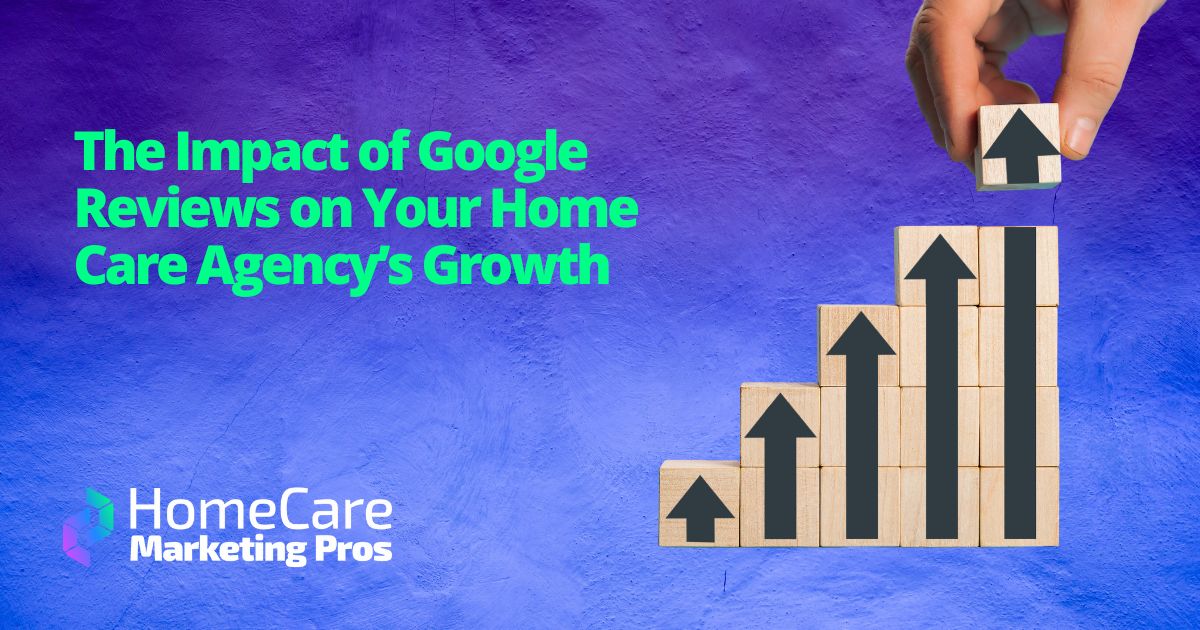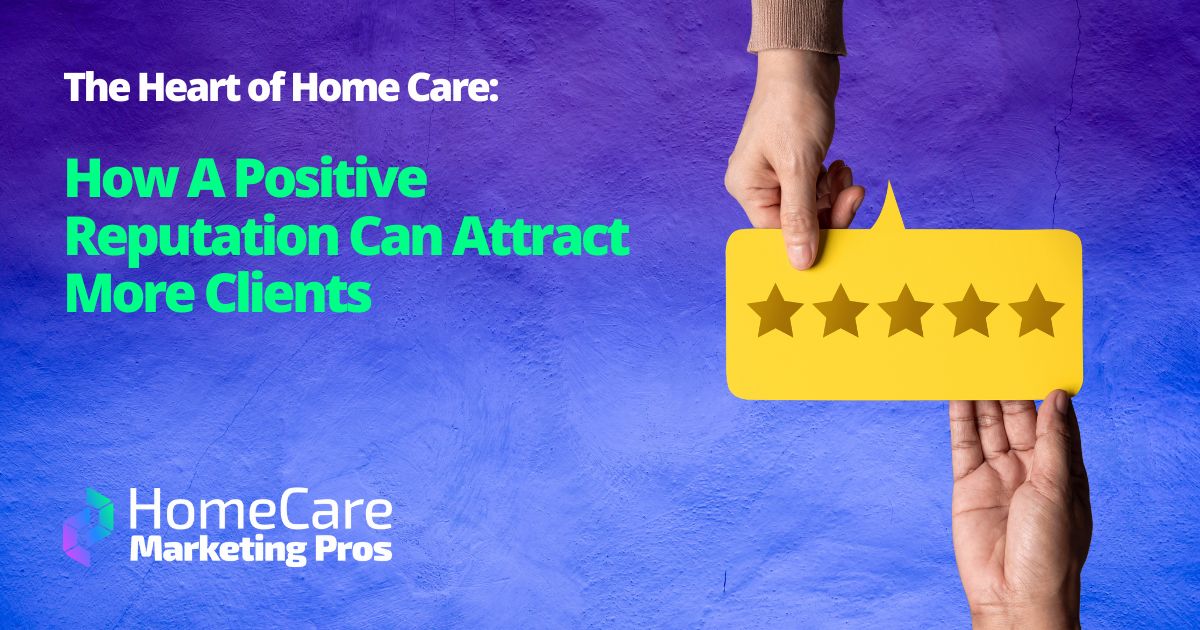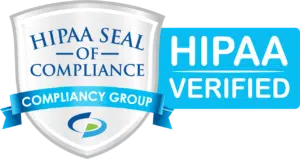Why Responding to Your Home Care Agency’s Reviews is Vital and How You Can Do It
How to respond to public reviews of your home care agency in a way that attracts and retains clients

You’ve likely experienced the good and the bad of home care agency reviews. On one hand, you may have a wonderfully pleased client who writes a positive review about their experience with your agency. On the other, you may also have a client who was less than happy and decided to make their feelings public. Now what?
Should you respond to reviews of your home care agency? If so, how? Where are you being reviewed? And can you use reviews—both good and bad—to your advantage as a business? We’ll answer all of these questions in this article.
Where is your agency being reviewed?
You’re most likely to find reviews of your home care agency on Google, Yelp, Care.com, and Caring.com. Here, clients can share their experiences in a public forum and can influence public perception and your ability to attract new business.
You might even find reviews of your agency on employer review sites like Glassdoor and Indeed. These employee reviews from your caregivers matter for your client-facing brand too. According to a 2020 report published by Edelman, 29% of consumers say the way a company treats its employees is the most important factor when deciding to become a loyal customer.
But there are also some reviews you may never see: The ones your clients give to their friends and family, the ones that never make it to the internet. You can get a sense of these word-of-mouth reviews by conducting regular pulse surveys, being mindful of survey fatigue, and giving clients an easy avenue to provide direct feedback whenever they want.
Do online reviews of your home care agency matter?
Reviews matter significantly in healthcare. According to the 2022 Healthcare Reputation Report:
- Online reviews matter for healthcare decisions: 75% of healthcare consumers read online reviews when choosing a healthcare provider.
- Clients want to see high scores: 72% of healthcare consumers look for a rating of at least 4 out of 5 stars when deciding on a facility or provider for themselves or their families.
- Responding to reviews makes a difference: 65% of healthcare consumers expect providers to publicly respond to reviews.
- There is a sweet spot for quantity: 80% of consumers expect to see at least five reviews to consider a provider trustworthy, but a very large number of reviews doesn’t necessarily boost the sentiment proportionately.
Why you shouldn’t be afraid of negative reviews
It’s not uncommon to get bad online feedback. That doesn’t mean your agency is a bad one, it just means someone had a bad experience once.
They’re not always a bad thing either. These reviews matter a great deal to your potential client base. Here’s why:
- Perfect scores raise suspicion: Don’t sweat a few bad reviews. According to the Spiegel Research Center at Northwestern University, consumers see 5-star reviews as “too good to be true.” Still, your scores should be strong.
- And negative ones increase credibility: Research from PowerReviews found that 82% of consumers actually seek out negative reviews, and the presence of negative reviews makes a business look more credible.
Should you respond to client reviews?
Yes. You should respond to all reviews of your home care agency, good and bad. Consumers expect you to—65% want to see you do it publicly. Not only does it show that you’re reading and listening to user feedback, but it’s also a way to invite engagement with your brand.
How to respond to negative home care agency reviews
1. Write guidelines for how you will respond
Make a plan to keep them consistent by documenting guidelines for how the company will reply. Consider:
- Who will respond?
- How quickly will the agency respond?
- What will the tone of your response be? What kinds of things are acceptable and unacceptable to say? Is there a loose template that can be used?
- Will you give reviewers a way to contact you directly?
- What will be your process for escalating major problems to leadership?
It’s worth your time to provide some approved language for responders to use, but avoid a strict template, which can feel impersonal. Reviewers and review writers will be able to spot a cut + paste job.
2. Take them seriously
Your clients’ experience matters, and you can learn a great deal from public reviews. Even the most angry may have some truth to them, so rather than responding with a defensive or dismissive tone, consider that their experience and feedback are valuable.
3. Thank the reviewer
When responding to agency reviews, always thank the reviewer for their business and for their time. You can do this with a simple line, like: "Thank you for bringing this to our attention! Or, thank you for taking the time to write."
4. Address their concerns
Acknowledge their concerns specifically. For example: "I’m so sorry to hear you had such an unpleasant experience with our scheduling team" or "We’re sorry our team wasn’t able to meet your needs. We don’t offer in-home pediatric care services right now, but we’re always looking for ways to expand our care offerings. Thank you for your feedback!"
5. Correct any factually incorrect information
When a reviewer gets something wrong about your business, you can gently correct them. Don’t do this defensively. The goal is to provide correct information about your agency.
For example, a client gives you a negative review, claiming that you don’t provide a service that you do, in fact, provide. You might respond:
"I’m sorry we weren’t able to help you! We do offer transportation services for seniors in the Tri-state area. We do, however, require 48-hours notice for pick-up. If you contact us with enough lead time, we can likely make it happen."
6. Tell them how you’ll make it right
Sometimes a reviewer raises a concern you’re already aware of, and perhaps you’re even working on an improvement. If this is the case, let them know.
"Thank you for bringing this to our attention. We’re sorry you didn’t have the best experience with our client service team. We’ve recently updated our training for all our phone staff and expanded our hours so we can address home care client concerns more quickly. You can also get in touch with us through our new chat function outside of regular business hours."
7. Invite them to contact you directly
If the problem raised in the review is particularly concerning, invite the reviewer to contact you directly. You might say: "We’re sorry this was such a negative experience for you. We’d like to know more so we can make it right. Please feel free to contact our problem escalation team at [X]."
Bonus tips for responding to home care agency reviews
- Respond to the good ones too: Positive reviews deserve your attention as much as negative ones do. Your replies should follow a similar template. For example: "Thank you for taking the time to review our services. We love our respite care team too! We’re so happy you have had such a great experience."
- Sound like a real person: Templates and approved language keep your replies consistent and accurate, but too much templatization can look mechanical and impersonal.
- Track the kinds of reviews you get and their content to identify patterns, systems, and processes that can be improved, and what’s working well. You may find that clients are encountering friction at a specific point in the care journey or with a specific team.
Need a hand with managing reviews for your home care agency?
Home Care Marketing Pros offers a number of digital marketing solutions that can help your agency get its name out there, including Reputation and Review Management! To find out more, contact us for a free home care marketing strategy session.













